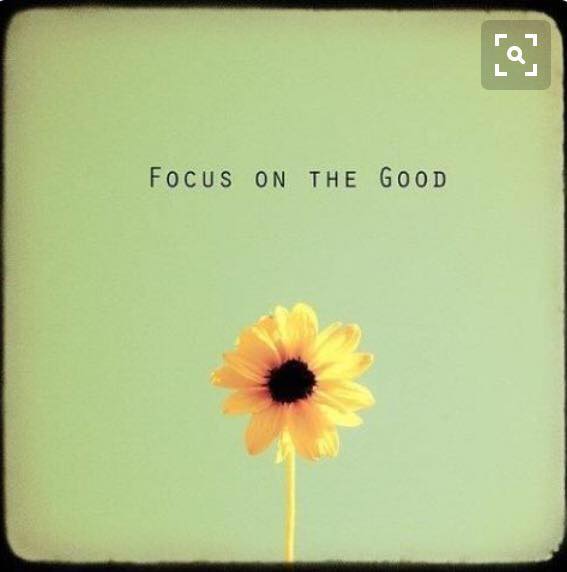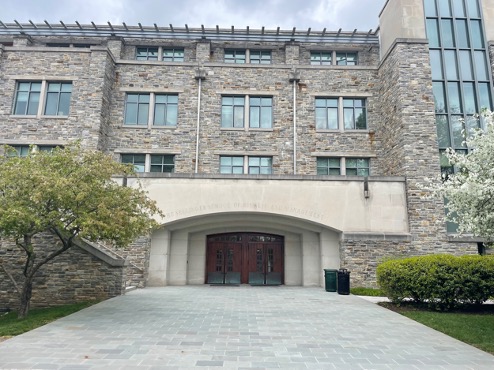On Thursday, March 10 Loyola’s chapter of Active Minds hosted two members from The National Alliance on Mental Illness (NAMI) who shared their stories about their experiences with mental illness. Active Minds is a national alliance that empowers students around the country to discuss the topic of mental health and raise awareness on their college campuses.
The two speakers for Thursday’s event were Phillip and Hannah, who are part of NAMI’s Baltimore division. NAMI “is the nation’s largest grassroots mental health organization dedicated to building better lives for the millions of Americans affected by mental illness” and was founded in 1979. Phillip, 55, shared with the crowd that he went back to college three years ago and ended up succeeding in the honors program. Phillip has been diagnosed with post-traumatic stress disorder, depression and anxiety. Hannah is 23 and graduated from college in May where she was an NCAA champion in rowing. She was diagnosed with depression her sophomore year.
The night was broken down into four stages as the speakers showed a NAMI produced video called “In Our Own Voice,” which featured other members discussing their battles with various mental illnesses. After each brief segment ended, Hannah and Phillip would add their own personal insights and open the floor to questions or comments. When the video first begins, the members introduce themselves as business people, grandparents and restaurant workers, which already begins to challenge the stigma that those with mental illnesses can’t lead what many consider to be “regular” lives.
The first part of the video was entitled “Dark Days,” and was one of the most powerful and hard-hitting segments of the presentation. Each NAMI member in the video discussed their struggles with mental illness, admitting that they felt worthless and even suicidal at times. Phillip’s darkest moment consisted of a four-day stint hidden in a room of his house, which he sited as the pivotal moment where he realized he needed help. For Hannah, depression set in strongest in college and the Harry Potter fan related depression to a Dementor, explaining that she never thought she would feel happy again. “It took all of my energy to put a mask on and pretend that everything was OK,” she shared.
Next, the video discussed what it was like to finally accept the diagnosis of mental illness. This is obviously a very individual process, and for Phillip acceptance came when he finally admitted he needed help. His eldest son, who had looked up to him for his entire life, found Phillip during his dark day and simply asked, “Do you want to talk to someone?” After years of not addressing the issue and turning to substances to numb the pain, Phillip was finally ready to talk. He has now been sober for 10 years. For Hannah, friends at college told her she had to get help or they would tell the school. While she resented them then, she admits “it was probably the most important thing someone could have done for me.”
Phillip and Hannah’s willingness to be so candid inspired the audience to share their own experiences, making for an open-forum discussion. One student with Asperger’s explained that she has always accepted who she is, while a student suffering from depression explained it took 18 years to finally know what was wrong and how important her family’s support has been in facing her diagnosis. Another student with anxiety explained that she has accepted her diagnosis in hopes to promote positive discussion around the topic, “I like to be open about it because I think it helps other people.”
The night ended on a segment called “Successes, Hopes and Dreams” where NAMI members explain that simply enjoying day-to-day life is an aspiration for the future. For Phillip, success has been his family who he hopes to continue to spend more time with now that he is sober. Hannah’s greatest success was starting a program called the Student Support System at her university, which allowed her to start the important, but often unaddressed, discussion around mental illness. Hannah plans to go to grad school to become a clinical psychologist and help others, but mostly hopes to “continue to be resilient in this life-long battle.” Before the program ended, a student in the audience shared that people like Hannah inspire her as she also plans to become a psychologist despite her own struggles with mental health.
If you’re interested in learning more about Active Minds at Loyola, be sure to check their Facebook page for event updates.
https://www.facebook.com/ActiveMindsAtLoyolaUniversityMaryland/?fref=ts
Photo courtesy of Active Minds Facebook page.














































































































